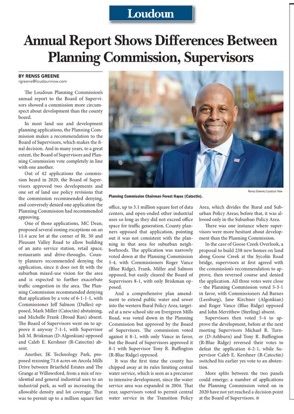
(202) 765-6950
Hooked on housing

BY ALEX KOMA
Staff Reporter, Washington Business Journal
At any given moment, Forest Hayes could be working on public housing issues in D.C., closing an affordable housing deal in Richmond, reviewing development plans in Sterling or getting ready for a fishing trip in Mexico.
To say he’s a busy man would be a bit of an understatement.
Hayes has a long history in development in the Greater Washington region, and that’s given him the chance to work on just about every part of the area’s housing crisis these days. He not only manages properties on his own as a small landlord with his family firm, Miller Beach, but he has a day job advising the D.C. Housing Authority as the agency manages a complex redevelopment and rehabilitation effort of its vast apartment holdings.
As if that wasn’t enough, he heads home to Waterford (a small village in Western Loudoun County) each night and puts on some different hats entirely – he works on affordable housing issues at the state level with the Virginia Housing Commission and chairs Loudoun’s Planning Commission, the first Black man to ever hold that title.
How did you first get engaged on affordable housing issues? I went to Howard University, in the same class as [Vice President] Kamala Harris actually, and right after I worked on Capitol Hill. That was that was my first real experience working around affordable housing and policy. I worked with a congressman from the South Bronx [former Rep. Jose Serrano, D-N.Y.] and that was a really good introduction to it. Ultimately, that led me working on housing in the Adrian Fenty administration.
So how did you get from D.C. to Loudoun? My son was approaching preschool age and the Fenty administration had come to an end. We started looking for the best place to raise our children. Now, I’m not a farmer, but I own a former farm, just 20 acres. I don’t think there’s anybody else on the planning commission that lives on a farm.
D.C. and Loudoun are both experiencing housing pressures right now, albeit very different ones. How do you approach that? In D.C., I have completed transactions and overseen projects that are mixed-income all the way down to what we would refer to as low-income housing. In Loudoun, our need is more the workforce housing space, we don’t need low- income housing as much. But that middle space of 60 to 100% of area median income is where I think that we really see our housing affordable housing gap. Many of our teachers, our firemen and our sheriff’s deputies, our service employees cannot afford to live in the county. And I enjoy being able to run into my daughter’s teacher at the Costco on Saturday. That’s what community is. So that’s my local crusade.
Loudoun’s made strides in embracing new housing, but there’s going to be some resistance as well. Do you think the county is ready for this? You know, I see all the recent news about there being racially charged issues coming to the forefront, the fights over critical race theory, but I sort of reject all that on a certain level. Because look, for the first time ever, the Loudoun County Planning Commission has an African-American as its chair. We have an African-American woman leading our Board of Supervisors]. You know, that really speaks volumes about the people here and just how forwardthinking they have become and how much we are ready to embrace the future.
How do you think development efforts can better advance racial equity broadly? There has to be some intentional focus on including minority developers and special programming to help them have access to capital. Maybe, in some cases, technical support to participate in the delivery of the affordable housing. And that’s not just big from the standpoint of equality. It’s about effective service delivery. When you are building a multifamily building in a neighborhood, it is important that you understand the neighborhood where you’re doing that project. And it’s important that you engage neighborhood in a way where they feel like the project belongs to them as well.
How do you juggle all these different roles? You know, I was the head of economic development for the city of Gary, Indiana, which is my hometown, when Barack Obama was in office. I commuted from here to Gary. Each week I would get on a plane at 6:00 a.m. every Monday morning, return about midnight on Friday night. So, I’m used to it. I just get a lot of fulfillment from it all.
How do you juggle all these different roles? You know, I was the head of economic development for the city of Gary, Indiana, which is my hometown, when Barack Obama was in office. I commuted from here to Gary. Each week I would get on a plane at 6:00 a.m. every Monday morning, return about midnight on Friday night. So, I’m used to it. I just get a lot of fulfillment from it all.
What do you do in your spare time? We just love to fish. One reason I bought this property is because I have a three-acre pond. Whenever we travel internationally, we almost always charter a boat and go try to catch whatever is indigenous to that area. We have big-game fished in Bermuda, in Mexico, Martha’s Vineyard, anywhere.
— Interview by Alex Koma

